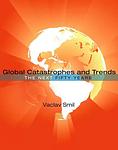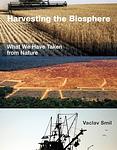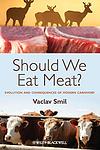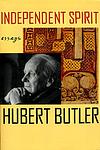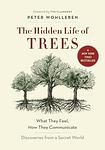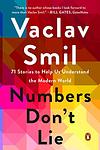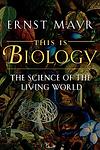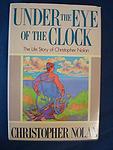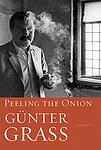The Greatest Czech, German, Irish "Nonfiction" Books Since 1980
Click to learn how this list is calculated.
This list represents a comprehensive and trusted collection of the greatest books. Developed through a specialized algorithm, it brings together 305 'best of' book lists to form a definitive guide to the world's most acclaimed books. For those interested in how these books are chosen, additional details can be found on the rankings page.
Genres
Countries
Date Range
Reading Statistics
Click the button below to see how many of these books you've read!
Download
If you're interested in downloading this list as a CSV file for use in a spreadsheet application, you can easily do so by clicking the button below. Please note that to ensure a manageable file size and faster download, the CSV will include details for only the first 500 books.
Download-
26. Global Catastrophes And Trends by Vaclav Smil
This book provides a comprehensive analysis of the major natural and human-induced disasters and trends that have the potential to significantly alter the course of human civilization. It delves into a wide array of topics, from environmental degradation and climate change to the risks of nuclear warfare and pandemics, offering a detailed examination of their causes, impacts, and the likelihood of their occurrence. The author meticulously assesses the probability and severity of these global challenges, combining scientific research with historical context to evaluate how they might shape the future. Through a blend of rigorous analysis and insightful commentary, the book aims to enhance our understanding of the complex dynamics that govern our world and the potential pathways to mitigate these global risks.
The 9050th Greatest Book of All Time -
27. Energy Transitions by Vaclav Smil
This book provides a comprehensive analysis of the historical shifts in energy sources and consumption patterns, from traditional biomass to fossil fuels and the potential future transition to renewable energy sources. It examines the technological, economic, and environmental challenges associated with these energy transitions, emphasizing the complexity and duration of these shifts. The author argues that while transitions to more efficient and less environmentally damaging energy sources are necessary, they will be gradual and require significant technological innovations and societal adaptations. Through a detailed exploration of past and present energy systems, the book offers insights into the future of global energy consumption and the path towards a more sustainable energy landscape.
The 9213th Greatest Book of All Time -
28. Energy Myths And Realities by Vaclav Smil
In "Energy Myths and Realities," the author critically examines the widespread misconceptions surrounding energy and its future. Through a rigorous analysis of data and trends, the book debunks popular myths about the potential of renewable energy sources, the pace of energy transitions, and the feasibility of achieving rapid changes in energy systems. It emphasizes the complexity of energy production and consumption, arguing for a more nuanced understanding of energy realities. The author advocates for realistic expectations and pragmatic approaches to energy policy and innovation, cautioning against the dangers of oversimplification and the allure of quick fixes in the discourse on energy sustainability and security.
The 9213th Greatest Book of All Time -
29. The Complete Letters Of Oscar Wilde by Oscar Wilde
This compilation is an exhaustive collection of correspondence penned by one of the most celebrated writers of the Victorian era, known for his wit, eloquence, and flamboyant style. The letters provide an intimate glimpse into the author's life, covering his rise to fame, his relationships, his trials, and his time in prison. They reveal his personal thoughts on art, literature, society, and his own creative process. The collection is not only a treasure trove for literary enthusiasts and scholars but also a poignant, revealing portrait of a complex man who was a central figure in the aesthetic movement of the late 19th century.
The 9484th Greatest Book of All Time -
30. Harvesting The Biosphere by Vaclav Smil
This book provides a comprehensive examination of the human impact on Earth's biosphere, focusing on the extraction and exploitation of biological resources. It delves into historical and contemporary practices of harvesting plants and animals for food, fuel, and raw materials, quantifying the scale and intensity of these activities. The author meticulously analyzes how these practices have evolved over time and assesses their sustainability and environmental consequences. By offering a detailed account of the biosphere's transformation under human influence, the book presents a critical perspective on the limits of resource utilization and the urgent need for adopting more sustainable practices to ensure the long-term viability of our planet's ecosystems.
The 9505th Greatest Book of All Time -
31. Should We Eat Meat? by Vaclav Smil
This book provides a comprehensive examination of the role of meat in human diets and its impact on health, the environment, and society. It delves into the history of meat consumption, explores the ethical considerations surrounding animal farming, and analyzes the environmental consequences of meat production, including greenhouse gas emissions and land use. The author presents a balanced view, weighing the nutritional benefits of meat against its ecological footprint and considering sustainable alternatives. Through a detailed and scientific approach, the book encourages readers to ponder the complex question of whether the consumption of meat is justifiable in the modern world, offering insights into possible future directions for global dietary practices.
The 9505th Greatest Book of All Time -
32. Independent Spirit by Hubert Butler
"Independent Spirit" is a collection of essays that delve into the rich tapestry of European history, politics, and culture through the discerning eyes of an Irish essayist. The book reflects on various topics ranging from the author's experiences in the Balkans to the complex interplay of religion and nationalism in Ireland. With a keen analytical mind and a profound moral sense, the essays explore the importance of maintaining cultural identity and historical awareness in the face of modern challenges, advocating for intellectual independence and the preservation of human rights. The author's eloquent prose and insightful observations make this work a compelling exploration of Europe's past and present.
The 9599th Greatest Book of All Time -
33. Energy And Civilization by Vaclav Smil
This book provides a comprehensive examination of the role that energy has played in the development of human societies, from the harnessing of fire by early humans to the complex energy grids of the 21st century. It explores how the transformation and consumption of energy have been pivotal in the advancement of civilizations, underpinning economic systems, technological progress, and the rise and fall of empires. The author meticulously analyzes the transition from muscle power to fossil fuels and renewable energy sources, highlighting the environmental and societal impacts of our growing energy demands. Through a detailed historical and scientific lens, the narrative underscores the critical importance of energy management in addressing current global challenges, advocating for a more sustainable and efficient future.
The 9804th Greatest Book of All Time -
34. The Hidden Life Of Trees by Peter Wohlleben
This book offers a fascinating exploration into the complex life of forests, revealing the social networks and communication methods that trees use to survive and thrive. The author, a forester, draws on groundbreaking scientific discoveries to illustrate how trees are like human families: tree parents live together with their children, communicate with them, support them as they grow, share nutrients with the sick and the weak, and even warn each other of impending dangers. With deep understanding and an eye for the wonder of these essential organisms, the narrative transforms the way we perceive trees, encouraging us to appreciate the intricate and interconnected life of the forest.
The 10030th Greatest Book of All Time -
35. Numbers Don't Lie by Vaclav Smil
In "Numbers Don't Lie," the author presents a compelling exploration of the essential statistics and facts that shape our understanding of the modern world. Through a series of insightful essays, the book delves into a wide range of topics, from energy and transportation to food production and environmental challenges. By analyzing data and debunking common misconceptions, the work offers readers a nuanced perspective on the complexities of technological advancement and its impacts on society. The author's rigorous approach to quantifying human progress and setbacks encourages a deeper appreciation for the role of empirical evidence in public discourse, making it a thought-provoking read for anyone interested in the interplay between science, technology, and culture.
The 10266th Greatest Book of All Time -
36. Marzahn, Mon Amour by Katja Oskamp
"Marzahn, Mon Amour" is a reflective and poignant narrative that delves into the lives of ordinary people through the lens of a podiatrist working in the Marzahn district of East Berlin. The book offers a tapestry of human stories, as the protagonist encounters a diverse array of clients, each with their own unique backgrounds and experiences. Through the intimate setting of the treatment room, the author weaves together tales of the community's past and present, exploring themes of identity, resilience, and the search for meaning in the day-to-day. This work serves as a touching exploration of the seemingly mundane aspects of life that, upon closer inspection, reveal the depth and complexity of the human condition.
The 10390th Greatest Book of All Time -
37. Crusade and Jihad: Islam and the Christian World by Bassam Tibi
This book explores the historical, ideological, and political aspects of the Crusades and Jihad, comparing and contrasting the two. It delves into the origins and evolution of the Crusades and Jihad, their impact on Christian and Islamic societies, and their relevance in today's world. The author also examines the role of religion in conflicts and the use of religious ideologies for political purposes, providing a comprehensive understanding of these complex issues.
The 10464th Greatest Book of All Time -
38. This Is Biology by Ernst Mayr
"This Is Biology" explores the essence and implications of biology, emphasizing its status as both a science and a key lens through which to examine the world. The book delves into the history and scope of biological study, addressing how life is defined, the evolution of species, and the complex interactions within ecosystems. It also discusses the impact of biology on society, including ethical considerations in genetic research and the role of biology in solving global issues such as environmental degradation and health challenges. Through this comprehensive overview, the book underscores biology's integral role in understanding both the natural world and human existence.
The 10493rd Greatest Book of All Time -
39. Under the Eye of the Clock by Christopher Nolan
This novel is a semi-autobiographical account of a young man with cerebral palsy who uses his intelligence and determination to overcome his physical disability. Despite being unable to speak or move without assistance, the protagonist excels academically, eventually earning a place at a prestigious university. The book is a testament to the power of the human spirit and the potential within us all to rise above our limitations.
The 10834th Greatest Book of All Time -
40. Peeling the Onion by Günter Grass
"Peeling the Onion" is a memoir that explores the author's experiences during and after World War II. The author, a Nobel laureate, reveals his involvement with the Waffen SS, a paramilitary organization of the Nazi party, when he was a teenager. The book delves into the author's struggle with guilt and memory, his journey to becoming a writer, and his exploration of how personal and collective memory impact our understanding of history. It is a candid, introspective look at the complexities of identity, morality, and truth.
The 10862nd Greatest Book of All Time
Reading Statistics
Click the button below to see how many of these books you've read!
Download
If you're interested in downloading this list as a CSV file for use in a spreadsheet application, you can easily do so by clicking the button below. Please note that to ensure a manageable file size and faster download, the CSV will include details for only the first 500 books.
Download